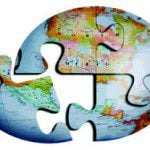For many of us, Daylight Saving Time began this morning at 2:00 am. This year’s version of “spring forward.” I’m going to go out on a limb and embrace the controversy that I know is to come: I like time changes. I like changing to standard time in the late fall, with nightfall earlier each day as we inch toward the winter solstice. For entirely different reasons, I appreciate springing forward on the night DST begins (even though we lose an hour of sleep that night), because it is the harbinger of summer evenings when it will be light until close to 10:00.
Perhaps because I come from stoic Swedish stock,  I don’t recall anyone in my family or our friends complaining about DST in my youth—it’s just something that happened, sometimes producing humorous situations such as the people who showed up for Easter Sunday services two hours late one year when the change to DST happened to fall on Easter because they turned their clocks back an hour instead of ahead. Spring forward and fall back, people!
I don’t recall anyone in my family or our friends complaining about DST in my youth—it’s just something that happened, sometimes producing humorous situations such as the people who showed up for Easter Sunday services two hours late one year when the change to DST happened to fall on Easter because they turned their clocks back an hour instead of ahead. Spring forward and fall back, people!
Over the past several years, I’ve noticed a marked spike in the number of people complaining about DST and the inconvenience of twice-per-year hourly shifts. The complaints haven’t been just about inconvenience or because someone forgot and was an hour late for a meeting or for church—for the first time I have learned that for some people the spring and fall time changes are among the most disruptive events of the year.
After reading one person proclaim that “DST is total bullshit” and another post that “It’s the twice-yearly jet lag and sleep disruption that is so hateful,” I thought that perhaps a voice of reason needed to inserted into the discussion. Minor sleep disruption, yes (although one extra hour of sleep is hardly disruptive), but jet lag? Hateful? What, do you get jet lag flying from Chicago to New York? Please. So I innocently posted “To be honest, I’ve never understood how a mere one hour difference can be such a source of disruption, dismay, and angst for so many people.” Boy, was that a mistake.
In short order I was informed that if I was not “physically afflicted” by the time change, I was not only lucky but also was “very rare.” Now I have no problem with being very rare (back in the days when I ate beef, that’s how I ordered my steak), but in this case I got the impression I was being called “very rare” as in “mutant” or “non-human.” I responded that I have an extensive network of family and friends (a bit of an exaggeration) and knew of only two who claimed to be bothered in any way by one-hour time changes, to which I received in response, “Whereas I have only a couple who claim they don’t.” One of us is clearly full of shit—and it was on.
So, I posted the following on my Facebook feed: A quick informal poll for my Facebook acquaintances–how many of you suffer from sleep deprivation, jet lag-like symptoms, or other such maladies because of the twice per year time changes? I don’t, but from what I read and hear many people do. How about you?
And as is so often the case with virtually any issue that people can disagree on, about 45 or 50 acquaintances split right down the middle. There are those like me, who not only suffer no negative effects from time changes but also suspect that those who do are exaggerating, suffering from psychosomatic symptoms, or just like to whine. Then there are the other half who not only suffer various symptoms from time changes but who also get quite defensive when someone reveals that this is not a universal affliction.
One person wrote that “some people have small children and dogs,” implying that insensitive persons such as I should have some sympathy for persons such as she who have a houseful of time-change-sufferers of various species (I wonder about how fish or turtles would do in her house). I probably did not help by responding “Of course—I have had two small children and multiple dogs, none of whom were ever affected.” The dogs usually were looking for their dinner an hour early for a day or so, but they adjusted.
I’m sure that most everyone has had such conversations about DST as well as other issues that sharply divide human beings from one another, from politics to food preferences. For instance, a guy on Facebook recently was pissed at people piling on with negative comments about fruitcake. Apparently fruitcake is one of his most pleasant childhood holiday memories, and people such as I promulgating negative stereotypes about fruitcake are crapping on his youth. Facebook is wonderful for generating such intractable and endless arguments, because often the people communicating have never met and know nothing about each other beyond the sound bites and bumper sticker pronouncements that are the heart and soul of social media.
There is a greater truth in play here—each of us is driven by the default assumption that our preferences, tastes, and experiences are the default setting for human normality. To slightly paraphrase Protagoras, each of us believes that “I am the measure of all things.” Other human beings are normal to the extent that they appreciate what I like and reject what I dislike. Hence the need for real human interaction rather than colliding sound bites—there is no better corrective to “I am the measure of all things” than to find out on a regular basis that one person’s absolute is another person’s “whatever” and that my “no brainer” and “go to” in any area of experience whatsoever is something that has never even risen to the next person’s “Top 1000” things in importance.
Although I do not suffer from DST-related symptoms and do not understand those who do, I admit that one thing about DST has become more difficult in my adulthood than when I was a child—adjusting the clocks. Digital time pieces are far more challenging to move forward or back an hour than good old non-digital watches and clocks. I still puzzle for several minutes twice per year trying to remember how to change the time on the microwave and stove, and forget about the Bose machine. We have two Bose machines, and they tell time accurately six months of the year—the rest of the time they are an hour fast.













